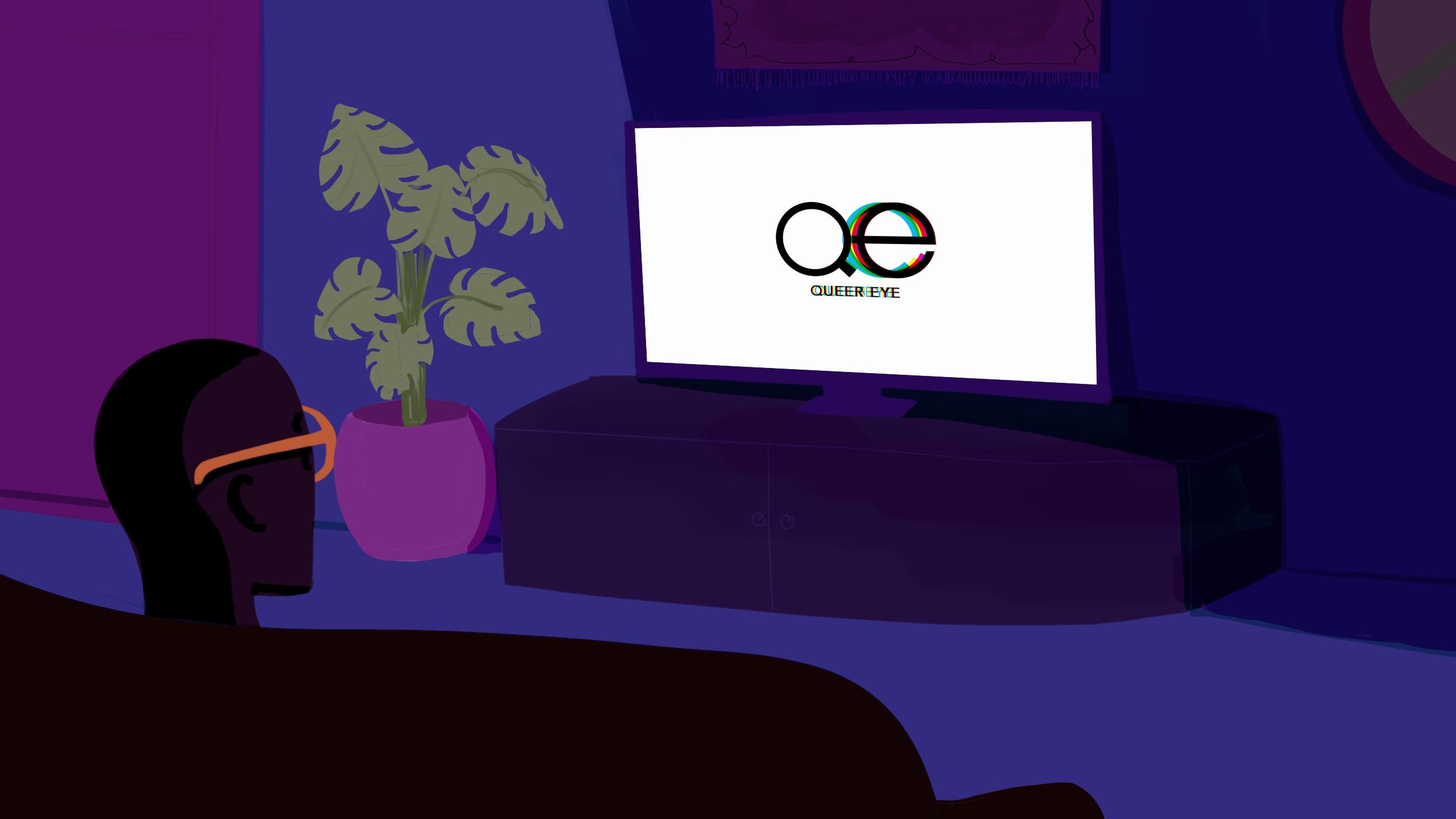By Brett Porter
With the perpetual boredom I’ve found myself experiencing these past few months—largely a result of COVID-19—television has become a reliable part of my daily routine. This hasn’t always been the case; those close to me can attest that, historically, getting me to watch a show or movie all the way through has been a challenge. But with few things to do, chronic fatigue and the frigid temperatures keeping me indoors, the allure of television has proved strong as of late.
I’ve now been consistently over-consuming media for quite some time, which inevitably leads one to run out of content they’re excited about. This is what led me to give Queer Eye—a show I had previously dubbed “ridiculous” and “uncomfortably queer”—a second chance. Admittedly, when I first watched it a couple of years back, I didn’t exactly give it a fair shot. In fact, I didn’t even finish an entire episode before I turned it off, feeling unsettled and embarrassed by the overwhelming exuberance and flamboyance of those on screen.
The rebooted Queer Eye is a television show that premiered on Netflix in 2018. It features five members of the LGBTQ2IA+ community, each with an artistic specialty—from hairstyling to home-cooking skills—giving lifestyle makeovers to individuals throughout the southern U.S. Colloquially referred to as ’the Fab Five,’ the team engages individuals with differing beliefs and value systems, resulting in a show that’s heavy in both style advice and social commentary.
This time around, seeing a genuine representation of the queer community…was an incredibly rousing experience.
Having now watched the show in its entirety and absolutely loving it, I understand my previous discomfort was a manifestation of my own internalized homophobia. This time around, seeing a genuine representation of the queer community, rather than a constrained and watered-down depiction, was an incredibly rousing experience. I’ve seen LGBTQ2IA+ portrayals in popular media before, but there’s a certain candour and femininity about Queer Eye that made it far more impactful for me.
The sheer positivity, love and generosity espoused by the Fab Five was almost romantic in its kindness to me as a viewer, especially as someone who hadn’t recognized how long they’d been carrying the weight of residual self-hatred.
I doubt there’s a single LGBTQ2IA+ individual who doesn’t go through a phase of self-doubt and loathing about their identity. But something that’s grossly under-spoken about is the need to actively unlearn these internal prejudices. While my period of intense questioning and self-hatred stemming from my LGBTQIA+ identity was over before I turned 18, I still unknowingly carried homophobia. I never sought to engage in a process to unlearn what I had picked up, as I figured I had outgrown the opinions I knew to be wrong.
What became clear after reflecting upon my latest watch of Queer Eye, however, was that this was false.
The sheer positivity, love and generosity espoused by the Fab Five was almost romantic in its kindness to me as a viewer.
For a long time, a subconscious part of me still believed flamboyance and femininity were to be condemned in men, a remnant of growing up in a less-than-progressive area in southern Ontario. Whether I was being interrogated by my classmates about my sexuality, given disapproving looks by passersby, or told not to wear certain clothes, paint my nails, experiment with makeup or wear perfume, I was often put on the defensive. These single moments we as LGBTQ2IA+ individuals move on from may not seem impactful, but in many cases, we carry and internalize lessons from them—knowingly or not.
When I moved to Toronto to start university, I felt a certain liberation. I could finally direct my individuality without feeling the same kind of pressing judgment. But the freedom to be oneself doesn’t necessarily facilitate self-healing. It may help, but a change in environment is no match for years of ingrained homophobia, both from immediate surrounding environments and generalized societal narratives.
I love being an effeminate, LGBTQ2IA+ identifying man, but unlocking my inner Queer Eye has helped me realize that my battle with unconscious homophobia—like so many others—is likely far from over.













Leave a Reply